The Latest
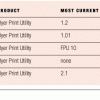 |
Look Before You Test[magazine] Test coverage is about insuring that test plans and test cases include information vital for successful testing of the program in the areas of functionality, performance, and the overall quality of the software. This article shows how to create a plan of attack to provide strong test coverage, determine the scenarios for the test plan, and manage the changes made to information used by testing. |
Kenneth Lengel
June 26, 2002 |
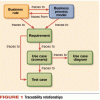 |
Automating Requirements Traceability[magazine] Developing software to meet users' specific needs can be a difficult task. Verification and validation activities can help ensure that you are building the right software right. |
Bill Councill
June 26, 2002 |
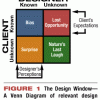 |
User-Driven Design[magazine] It doesn't matter when you deliver, if you build the wrong product. Development entails inferences and assumptions about the user, which are supposed to guide the build-process. However, even if development successfully matches the inferences and assumptions about the user, if those criteria don't match the Real User, the product fails. This article talks about how to incorporate the user into the requirements and design phase. |
|
 |
Immunizing Against Predictable Project Failure[magazine] To be truly successful, a project needs more than a list of requirements and good intentions. Here's a way to use project charters to define the big-picture relationship and expectations between Developers and Management. |
I II
June 26, 2002 |
|
Using Monkey Test Tools[magazine] Monkey testing refers to automated testing done randomly without any "typical user" bias. Here's a look at how to use such random testing techniques to cost-effectively catch bugs you might otherwise miss. |
Noel Nyman
June 26, 2002 |
|
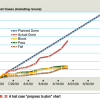 |
Effective Test Status Reporting[magazine] The way you report test status can impact both real and perceived effectiveness. Here's how to master the upward and outward management of communicating test progress and results. |
|
|
Quality Meets the CEO[magazine] Management and testers may not often speak the same language. This article takes an unvarnished look at the communication gap between quality advocates and management and offers ways to open a dialogue and gain credibility. |
||
|
Managing in Mayberry: An Examination of Three Distinct Leadership Styles[magazine] The assumptions you make about the people you manage can shape your management style. Here's a detailed look at three distinct styles of management and how they apply to your software projects. |
Dan Starr
June 26, 2002 |
|
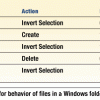 |
Intelligent Test Automation[magazine] "Warning: The fairy tale you are about to read is a fib--but it’s short, and the moral is true. Once upon a product cycle, there were four testers who set out on a quest to test software." Read this article for the whole Intelligent Test Automation story. |
|
 |
Modeling Organizational Change[magazine] When you approach a process problem in the way your workgroup functions, you're implementing an organizational change. Organizations are systems of complex interrelationships. Explicit models can help you make strategic changes. |
|
|
James Bach on Explaining Testing to Them[magazine] Are your co-workers in the dark when it comes to understanding how testing works? James Bach provides good responses to common questions, including nine basic principles of good hallway explanations. Learn how to give a programmer or manager a more accurate view of your job. |
||
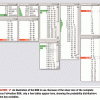 |
Bayesian Belief Nets: Predicting Defect Rates and Resource Requirements[magazine] A Bayesian Belief Net is a graphical network that represents probabilistic relationships among variables. Here is a studied look at this causal modeling technique as applied to defect prediction and resource estimation. |
Norman Fenton
June 26, 2002 |
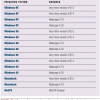 |
Mining Gold from Server Logs[magazine] What do your customers really think about your Web site? Here's how to use the records you already have to improve your Web testing. |
|
 |
Measuring Process Improvement[magazine] Tracking your project goals lets you know how well your improvement program is going, provides visibility early to detect problems, and gives you data to make your future plans more effective. Here's how to measure improvement based on your project's goals and problems. |
Mary Sakry
June 26, 2002 |
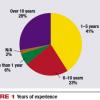 |
Revisiting Your Piece of the Pie: Money in the New Millennium[magazine] More than 1,800 industry professionals responded to the third annual STQE/StickyMinds salary poll. The results suggest that, although it has been an unsettling year, the picture doesn't look all that bad for software QA professionals. |
Alyn Wambeke
June 26, 2002 |






